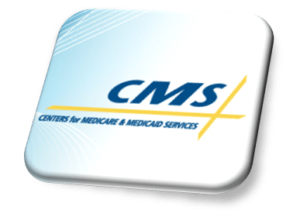 Considering the fact that Medicare and Medicaid Conditions of Participation (CoP) for home health agencies (HHAs) have been in place without major revision for nearly twenty years, a recent rule finalization by the Centers for Medicare & Medicaid Services (CMS) is noteworthy. Earlier this month, CMS issued a final rule that expanded and updated CoPs and arguably contemporized the HHA guidance framework.
Considering the fact that Medicare and Medicaid Conditions of Participation (CoP) for home health agencies (HHAs) have been in place without major revision for nearly twenty years, a recent rule finalization by the Centers for Medicare & Medicaid Services (CMS) is noteworthy. Earlier this month, CMS issued a final rule that expanded and updated CoPs and arguably contemporized the HHA guidance framework.
“Highest level of patient-centered care” is goal of CoP updates
In a press release, Kate Goodrich, CMS chief medical officer and director of the Center for Clinical Standards and Quality for CMS, said: “Our priority is to ensure that Medicare and Medicaid beneficiaries who receive health services at home get the highest level of patient-centered care from home health agencies. Today’s announcement is the first update in many years to Medicare and Medicaid home health agency rules and reflects current best practices for in-home care, based on recommendations from stakeholder and medical evidence.”
The draft proposal of the rule was released late in 2014, with a stipulation that the final version must be completed within three years. Numerous groups in the home healthcare field (such as the National Association for Home Care & Hospice [NAHC]) had expressed support for the 2014 draft proposal, and also contributed suggestions or concerns during the ensuing comment period.
Joy Cameron is vice president of public policy at the Visiting Nurse Association of America (VNAA). “We do agree with many of the main principles the CoP, the conditions, were trying to get at, which was patient-centered care,” she said. “It will be interesting to see the difference between the draft and now, because a significant amount of time has passed.”
The CoPs will go into effect in mid-July of this year and outline the specific requirements for home healthcare agencies to take part in Medicare and Medicaid. In the introduction to the rule, CMS states that those requirements in part “focus on the care delivered to patients by HHAs, reflect an interdisciplinary view of patient care, allow HHAs greater flexibility in meeting quality care standards.”
Implementation does not come cheap
The CMS estimates that the cost for implementing the CoPs will run a bit over $293 million in their first year and just over $290 million in the years to follow.
At the present time in the U.S., there are over 5 million Medicare and Medicaid enrollees receiving some type of medical care at home, and more than 12,000 home healthcare organizations taking part in Medicare and Medicaid.
Some highlights of how the final rule updates or expands the underlying CoPs:
- The responsibility for all patient care services (including the assessment of care plans and the coordination of referrals) will now fall upon a licensed clinician.
- A program that addresses quality assessment and performance improvement (QAPI), and measures and strengthens patient care, will be required for all HHAs.
- A system that allows for coordination of patient care and ongoing communication between the HHA and the patient’s doctors must be implemented.
- Comprehensive patient rights must be clearly stated and rigorously upheld.
- Relevant communication regarding patient care must be well-documented.
- Thorough patient assessments must take into consideration all areas of health and well-being.
Some of the concerns expressed by HHAs during the comment period regarded whether they would be granted sufficient time to become compliant with the revised rule as well as implement a new QAPI program. Further, some groups noted confusion about the specific steps HHAs would need to take in aligning with new communication stipulations.
Another goal: “eliminating unnecessary procedural burdens on providers”
Despite the not-insignificant price tag for ensuring that the CoPs are followed, the CMS states that one of its goals for updating them is to do away with administrative tasks that are ultimately not necessary: “These changes are an integral part of our overall effort to achieve broad-based, measurable improvements in the quality of care furnished through the Medicare and Medicaid programs, while at the same time eliminating unnecessary procedural burdens on providers.”
For more information/questions regarding any legal matters, please email [email protected] or call 310.203.2800.